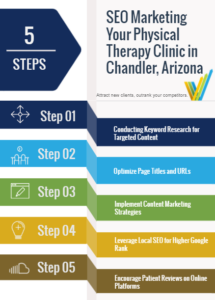Tracking the number of sales you get directly from your content is hard.
Like, really hard.
For example, it’s extremely rare any single blog post you write makes the sale now. Instead, content builds a relationship slowly over time, until months later when someone needs your product or service, they buy from you.
When someone calls you, how do you know your blog influenced them to act? If you ask them how they heard about you, they might say, “Oh, a friend told me.” But in reality, that friend may have told them, and then they read your blog and e-mail newsletter, and now they’re buying for all those reasons.
While you may not be able to perfectly track your ROI, there’s all sorts of statistics proving its value. Kapost, a leading provider of content marketing services, found website conversion is about 2.9% for businesses that use content marketing versus .5% for those that don’t.
Simply follow these tips to write powerful content that sells:
- Use Interesting Headline Formulas
“How to…” and “10 Tips for…” are your basic go-tos. But they’re getting boring and people are becoming blind to them because they’ve seen these titles thousands of times now.
Try some of these unique variations out:
- How to [Do something] that [Gets benefit interesting to your readers] – just like this post title uses
- 13 Warning Signs That… [Problem that keeps your readers up at night]
- The 5 Laws for… [Authoritative solution to your customer’s problem]
- How to Take Charge of Your [Unruly problem] – credit the last 2 ideas here to blogging expert Jon Morrow
- Write Explicitly for a Single Audience
If you attempt to target 2 or more, that’s a marketing nightmare. Let the big brands market to different audience segments.
As a small business, you need to focus on serving a niche. This means both knowing who and who not to write to.
Your audience must be specific. For example, you don’t want to sell “consulting services” to “SMB owners.” You want to “mentor new CEOs and Presidents at healthcare companies with revenues $10 million or less who are overwhelmed with all the responsibilities of their positions.”
- Don’t Use Bland Language or Complex Jargon
Imagine you walk into your 12-year-old child’s class to talk about what your business does. That’s how you should write your web content.
No joke!
That’s the way people want their information these days. One of your children around might be around this age, and you could practice with them.
Sit down and have a conversation.
Once they get what you say with 100% accuracy, you know how to communicate your business to web readers.
It Helps to be a Professional Writer, But You Don’t Have to Be One!
You do, however, have to be a skilled communicator. Follow these tips, and you know how to write content that sells.






